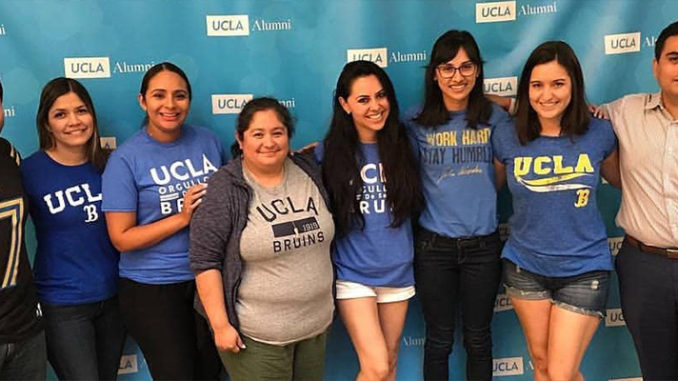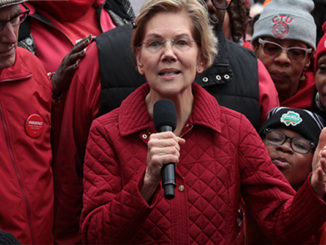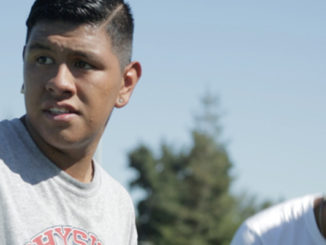
by Teresa Watanabe
In a historic shift, Latinos are now the largest group of prospective freshmen accepted into the University of California for fall 2020, part of the most diverse first-year UC class ever admitted, according to preliminary data released Thursday.
Latinos slightly eclipsed Asian Americans for the first time, making up 36% of the 79,953 California students offered admission. Asians made up 35%, whites 21% and Black students 5%. About 44% of admitted students were low-income while 45% were the first in their families to attend a four-year university.
Overall, the UC system’s nine undergraduate campuses offered admission to 119,054 freshmen, up from 108,178 last year. The campuses also admitted 28,074 transfer students, including the largest-ever class from the California Community Colleges system. The admission rate for all campuses rose to 69%.
“This has been an incredibly challenging time as many students have been making their college decision in the midst of the COVID-19 pandemic,” said UC President Janet Napolitano. “UC continues to see increased admissions of underrepresented students as we seek to educate a diverse student body of future leaders. The incoming class will be one of our most talented and diverse yet, and UC is proud to invite them to join us.”
UC Berkeley led all campuses in boosting admission offers to underrepresented minorities, accepting the largest number of Black and Latino students in three decades and a 40% increase over last year. The increase reflects an intensified push by the one of the nation’s premier public research universities to open its doors more widely to students of diverse racial, ethnic and economic backgrounds. Berkeley also admitted more students who are low-income, lack immigration status or are the first in their families to attend college.
“These numbers are an important and gratifying indication that our efforts to advance and expand the diversity of our undergraduate student body are beginning to bear fruit,” UC Berkeley Chancellor Carol Christ said in a statement. “But now, more than ever, we must not be complacent, and remain focused on building a campus community that truly represents the state we serve, and allows every student to experience a true sense of belonging.”
While the number of Latino admissions systemwide was the highest ever, Asian American students still lead at most campuses.
UCLA admitted more prospective California freshmen this year, rising to 9,208 from 8,352 last year. Asian Americans made up 42% of admitted students, followed by Latinos and whites at 23% each and Black students at 6%.
At Berkeley, Asian Americans also were the largest group offered freshmen seats at 42%, followed by Latinos at 29%, whites at 19% and Black students at 5%.
It is not yet clear how many students will accept the admission offers and enroll this fall as the ongoing pandemic hampers plans to begin restoring the classic college experience with reopened classes and dorms. Campus officials say they will not know their final enrollment numbers for another few months.
At Berkeley, the number of freshmen requests to defer their admission this year doubled to 119 from 60 last year. The deferrals, however, represent just a small fraction of the 15,435 students offered freshmen seats this year. Officials said they expect only a “minor drop” in enrollment.
Most UC campuses have announced plans to offer limited in-person classes and significantly reduce on-campus student housing. UCLA, for instance, has said only about 15% to 20% of courses are likely to be offered on campus or in a hybrid format, including some that involve laboratory work, performing arts and clinical health fields.
The robust increase in admission offers to underrepresented students this year reflects UC’s newly aggressive efforts to promote diversity, access and equity.
The Board of Regents voted this year to phase out SAT and ACT tests as admission requirements because they are heavily influenced by race, income and parental education level. Regents also voted to support a proposed constitutional amendment on the statewide November ballot that would repeal Proposition 209, which banned affirmative action in public education and employment. And this month, regents selected Michael V. Drake as the new UC president, the first Black leader in the system’s 152-year history.
UC’s diversity took a dive after the 1996 passage of Proposition 209 and officials have worked to restore it since. The percentage of American Indian, Black and Latino students fell from about 20% of all admitted freshmen in 1994 to 15.6% in 1998; today, their share has climbed to 29%.
Olufemi “Femi” Ogundele, Berkeley’s assistant vice chancellor and director of undergraduate admissions, said he was particularly proud that his campus did not compromise its high academic standards in increasing diversity.
The average unweighted GPA for this year’s admitted freshman class remained the same as last year at 3.91. The average ACT score was unchanged at 29 and the average SAT score was 1415 compared to 1419 last year, both scores hitting the 95th percentile.
“We are showing that you can admit a diverse class that is excellent,” Ogundele said. “There are stars everywhere. It is just a matter of finding those stars.”
One of them is Raven Gatson, a Black student from San Antonio who excelled in high school with a perfect 4.0 GPA, 11 Advanced Placement classes and a slew of leadership experiences as class president, editor of the school newspaper and vice president of the National Honor Society. When she received her admission offer in March, Gatson said she and her family burst out in tears. An $8,000 annual scholarship, privately funded through Berkeley’s African American Initiative, sealed the deal.
Gatson said she was excited to begin classes in the school’s top-ranked political science program and take advantage of opportunities that could pave the way for a possible career in law, politics or diplomacy. She also is looking forward to connecting with Berkeley’s small but vibrant Black community and said several students and staff already have reached out to welcome her.
“Being admitted to Berkeley means everything to me,” Gatson said. “Berkeley is special for its history of activism and it being an elite academic institution … a public Ivy.”
Teresa Watanabe covers education for the Los Angeles Times. Since joining the Times in 1989, she has covered immigration, ethnic communities, religion, Pacific Rim business and served as Tokyo correspondent and bureau chief.
.



